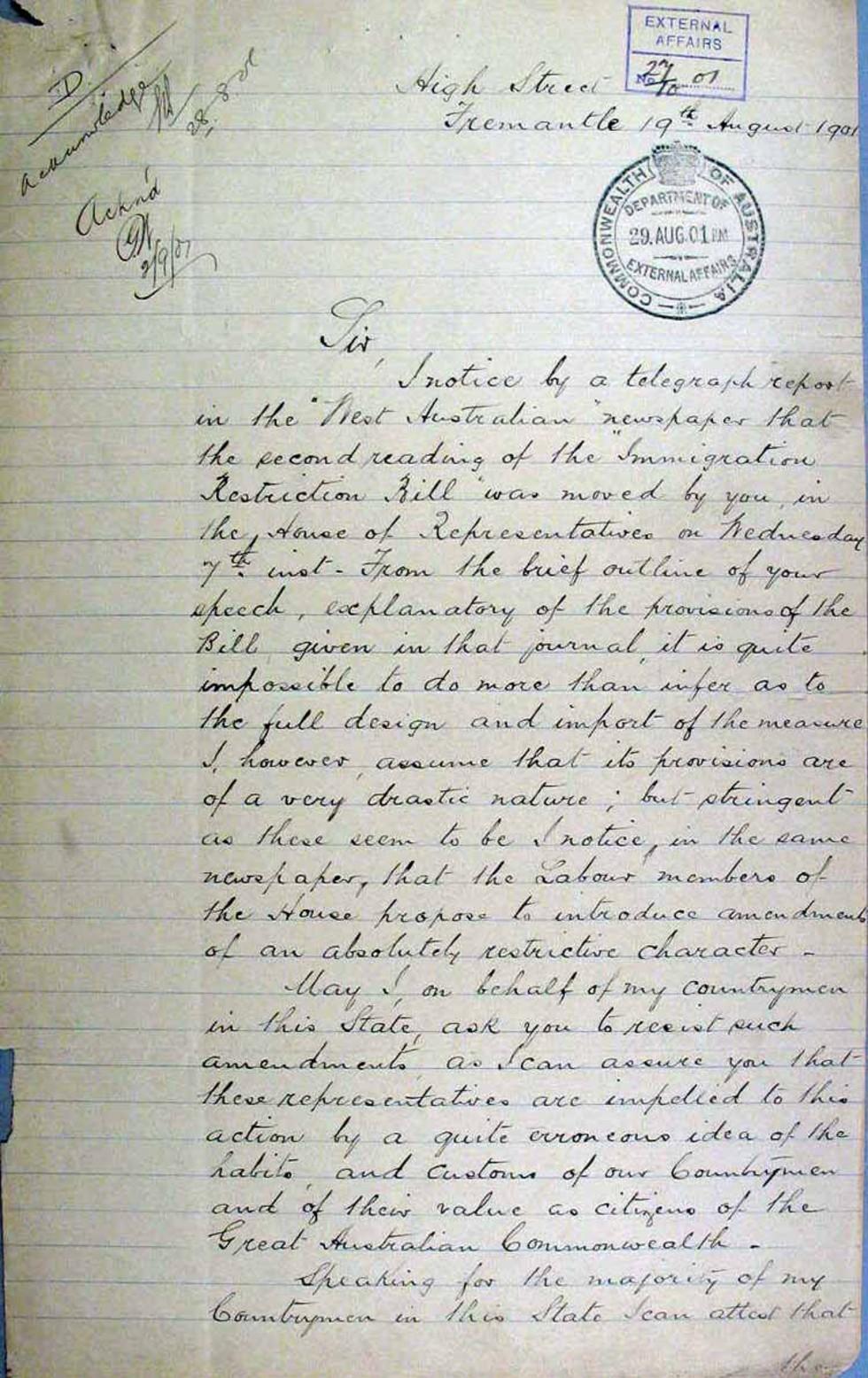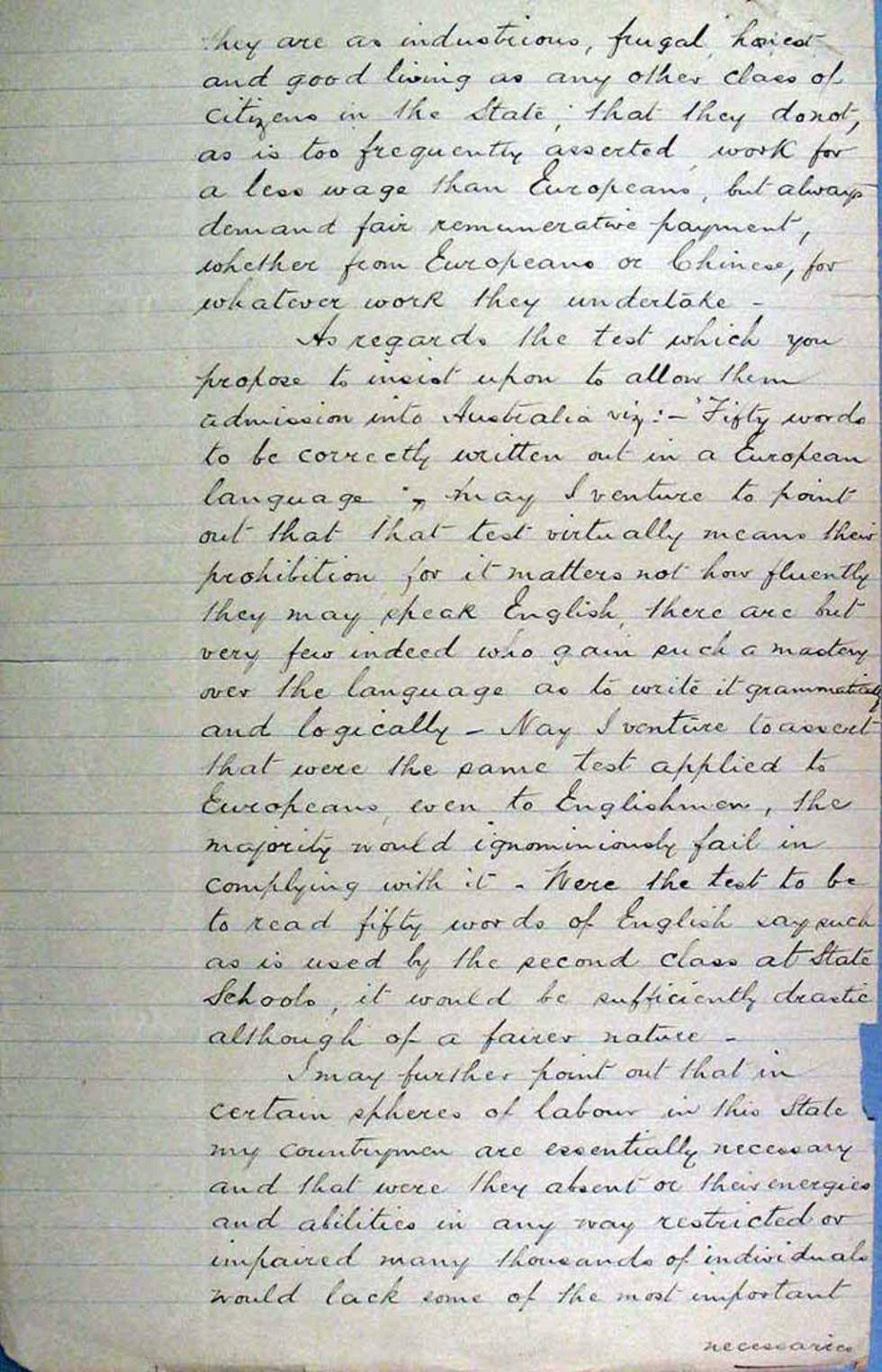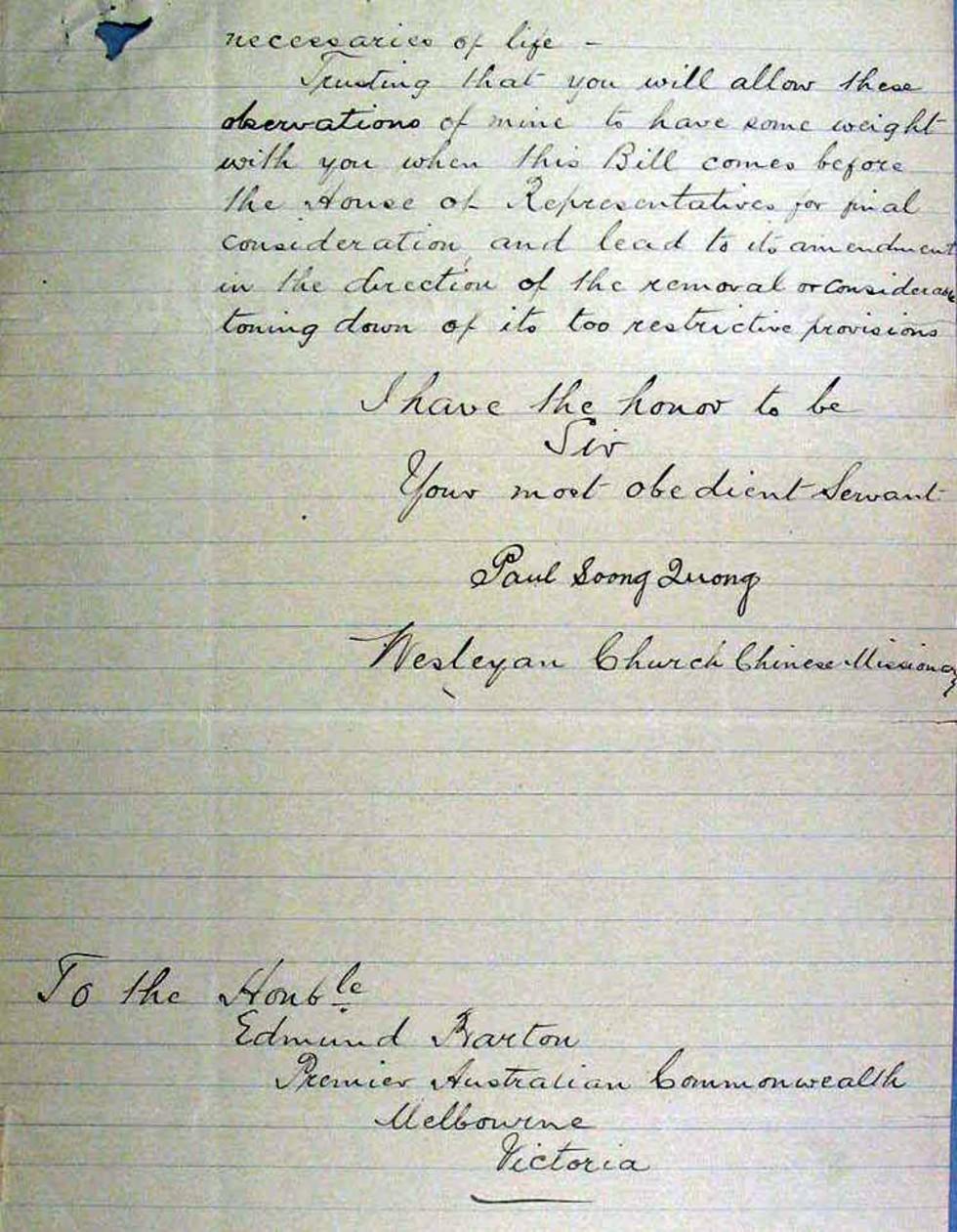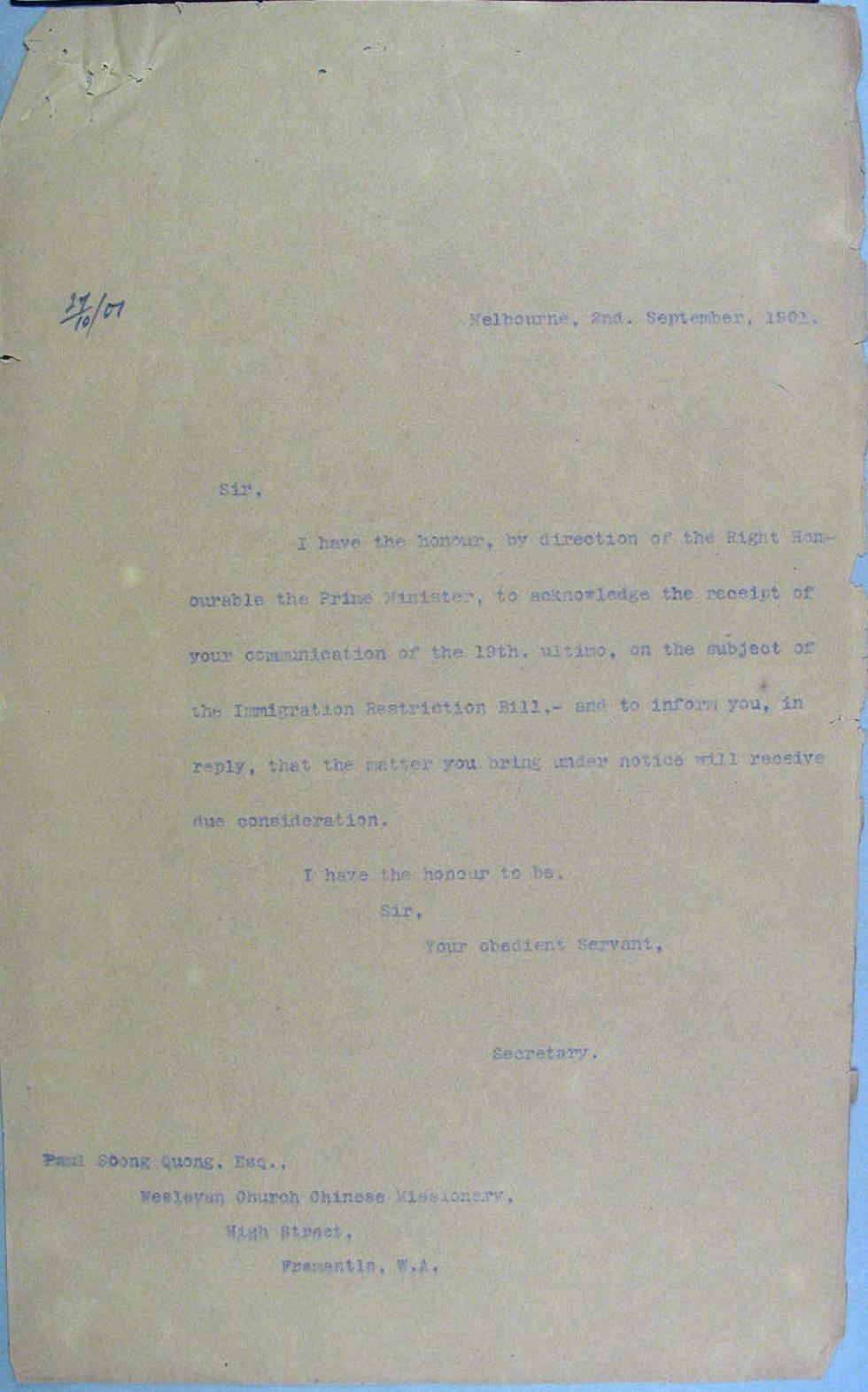



Aboriginal and Torres Strait Islander people should be aware that the National Archives' website and collection contain the names, images and voices of people who have died.
Some records include terms and views that are not appropriate today. They reflect the period in which they were created and are not the views of the National Archives.





[Page 1.]
[stamp in blue ink, reads:]
EXTERNAL AFFAIRS
No. 27/10. 07. [numbers handwritten in black ink.]
[End of stamp.]
[All remaining text on this page is handwritten in black ink.]
[Underlined:] D
Acknowledge
[initials, illegible.]
28.8.01
Ackn’d [sic]
[initials, illegible.]
[Underlined:] 2/9/01
High Street
Fremantle 19th August 1901
[Circular stamp in black ink reads ‘COMMONWEALTH OF AUSTRALIA’ around the outside and ‘DEPARTMENT OF EXTERNAL AFFAIRS’ ’29. AUG. 01 PM’ inside.]
Sir,
I notice by a telegraph report in the West Australian newspaper that the second reading of the “Immigration Restriction Bill” was moved by you in the House of Representatives on Wednesday 7th inst [sic] – From the brief outline of your speech, explanatory of the provisions of the Bill given in that journal it is quite impossible to do more than infer as to the full design and import of the measure[.] I, however, assume that its provisions are of a very drastic nature; but stringent as these seem to be I notice, in the same newspaper, that the Labour members of the House propose to introduce amendments of an absolutely restrictive character –
May I, on behalf of my countrymen in this State, ask you to resist such amendments as I can assure you that these representatives are impelled to this action by a quite erroneous idea of the habits and customs of our Countrymen and of their value as citizens of the Great Australian Commonwealth.
Speaking for the majority of my Countrymen in this State I can attest that they [continued on page 2.]
[Page 2. All text on this page is handwritten in black ink.]
[I can attest that] they are as industrious, frugal, honest and good living as any other class of citizens in the State; that they do not, as its too frequently asserted, work for a less wage than Europeans, but always demand fair remunerative payment, whether from Europeans or Chinese, for whatever work they undertake.
As regards the test which you prepare to insist upon to allow them admission into Australia [illegible]; - Fifty words to be correctly written out in a European language – may I venture to point out that that test virtually means their prohibition for it matters not how fluently they may speak English, there are but very few indeed who gain such a mastery over the language as to write it grammatically and logically – Nay I venture to assert that were the same test applied to Europeans, even to Englishmen, the majority would ignominiously fail in complying with it. Were the test to be to read fifty words of English say such as is used by the second class at State Schools, it would be sufficiently drastic although of a fairer nature.
I may further point out that in certain spheres of labour in this State my countrymen are essentially necessary and that were they absent or their energies and abilities in any way restricted or impaired many thousands of individuals would lack some of the most important necessaries [continued on page 3.]
[Page 3. All text on this page is handwritten in black ink.]
[some of the most important] necessaries of life.
Trusting that you will allow these observations of mine to have some weight with you when this Bill comes before the House of Representatives for final consideration and lead to its amendment in the direction of the removal or considerable toning down of its too restrictive provisions.
I have the honor to be
Sir
Your most obedient servant
Paul Soong Quong
Wesleyan Church Chinese Missionary[.]
To the Honble [sic]
Edmund Barton
Premier Australian Commonwealth
Melbourne
[Underlined:] Victoria
[Page 4. Text on this page is typed in blue ink.]
[handwritten note, reads:] 27/10/07
Melbourne, 2nd. September, 1901.
Sir,
I have the honour, by direction of the Right Honourable the Prime Minister, to acknowledge the receipt of your communication of the 19th. ultimo, on the subject of the Immigration Restriction Bill,- and to inform you, in reply, that the matter you bring under notice will receive due consideration.
I have the honour to be,
Sir,
You obedient Servant,
Secretary.
Paul Soong Quong. Esq.,
Wesleyan Church Chinese Missionary,
High Street,
Fremantle, W.A.
The first letter is from Paul Soong Quong, a Wesleyan Church Chinese missionary in Fremantle, Western Australia, to Prime Minister Barton. It expresses Quong’s concerns about the Immigration Restriction Bill before Parliament and how it unfairly discriminates against Chinese people. Later that year the Immigration Restriction Act was passed, which aimed to prohibit non-British migrants, particularly Asian migrants, from entering Australia.
The response letter is written to be signed by the Secretary of the Department of Foreign Affairs. It briefly acknowledges receipt of Quong’s letter and advises him that ‘the matter you bring under notice will receive due consideration’.
Learn how to interpret primary sources, use our collection and more.
